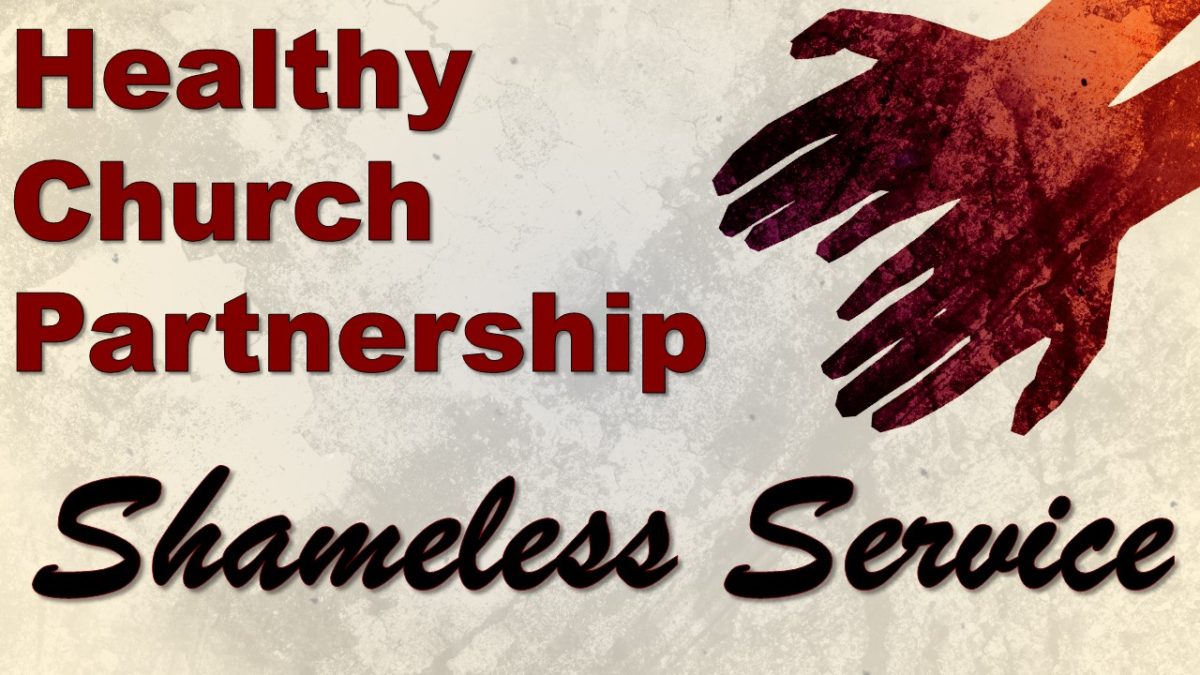Some years ago I was warming the bench in a church basketball league. (This should indicate something of my skill.) After watching one of our better players shoot and miss, shoot and miss, shoot and miss, my teammate next to me finally said, “You know he’s a shooter, because he’s shameless.”
Serving one another in the church is like that. It’s what we do, despite failure, difficulty and confusion. It’s a mark of healthy, local church partnership. We just keep going after it.
But, apart from Christ, it’s not natural, and it’s not what we do!
In John 13 Jesus shares a Passover-like meal with his disciples, the night before His death. This is the meal (also recorded in Mark 14 and Luke 22) where Jesus institutes the Lord’s Table. Jesus is the Passover lamb, and so will not share the usual feast with His disciples. Instead, He’s bringing the old order to a close. In John 13, Jesus shows His disciples His love, the way to remain in fellowship with Him during His absence, and how we’re all to serve one another until He returns.
Jesus … laid aside his outer garments, and taking a towel, tied it around his waist. Then he poured water into a basin and began to wash the disciples’ feet … (:3-5).
We must be washed by Jesus (:1-11). This is the requirement for knowing Him and serving one another in His absence.
Especially here, there’s always a snake in the grass. Jesus’ shameless service takes place in the face of an enemy. Since the garden when Satan entered into the snake to deceive our first parents, Jesus’ enemy has always opposed the work of redemption. Now, Satan has poisoned the mind of Judas (:3) and will eventually enter him, as he did the serpent (:27). Jesus will send Judas from the room, this before teaching His true followers (chapters 14-17). But first, Jesus washes Judas along with the others.
Jesus’ washing is also necessary. In the culture of the day there ought to have been a servant to wash the guests’ feet. Perhaps the disciples had missed this detail while they were organizing the meal and shouldering their way up to the head of the table (Luke 22.24-30). It had to be awkward. Who is the least who will do the job? Finally, the host becomes the servant, as He’d always made Himself. But Jesus also radicalizes this washing. If I do not wash you, you have no share with me (:9). Jesus is talking about regeneration, the new birth by faith (chapter 3). It’s true of Peter and the others, but not of Judas (:11). This one-time washing will be necessary to know Jesus after His departure. Likewise, those who have been cleaned by Jesus will need to make confession of their sins to maintain fellowship with Jesus (:10; 1 John 1:7-8).
Finally, Jesus’ washing is simply shameless. John makes a point of noting that Jesus … laid aside his outer garments (:4). Jesus’ cloak might have been impressive, woven of one cloth, as we know from the cross scene. Luke 8 also informs us that Jesus had wealthy patrons. Then, He was a rabbi and might have worn the tassels befitting His office. All this went to the ground, replaced by a towel. Christ served shamelessly.
In response, we His disciples must wash each other (:12-17). If I then, your Lord and Teacher, have washed your feet, you also ought to wash one another’s feet.
As in Jesus’ washing of us, our service to one another will be shameless, necessary, and in the face of an enemy. Often, the enemy presents himself in the same kind of confusion we see in the Upper Room. We don’t know what to say … it’s awkward … we hope against hope that somebody else will take up the towel … it’s messy … we’re clearly not gifted for that sort of thing. Once more, there’s a snake in the grass.
And yet, serving one another shamelessly is to be our mode of operation till Jesus returns. So, we send the text when we’d rather stay unentangled. We pick up the prepared chicken from Sam’s and turn up on our friend’s doorstep to say, “I’m so sorry for your pain. I love you, and here’s something to keep you going a bit.”
We take up the towel, because it’s what we do, despite failure, difficulty and confusion. We keep going at it. We serve … shamelessly.
Circle up with someone you’re accountable to and think through the following questions:
What are the enemies to shameless Christian service with which you’re most familiar?
What would be a contemporary equivalent to foot washing?
Why might it be significant that Jesus washed Judas’ feet?
What are the benefits to be “being washed by Jesus” and to “washing one another’s feet”?
Is there anybody who’s “feet” you need to wash?


